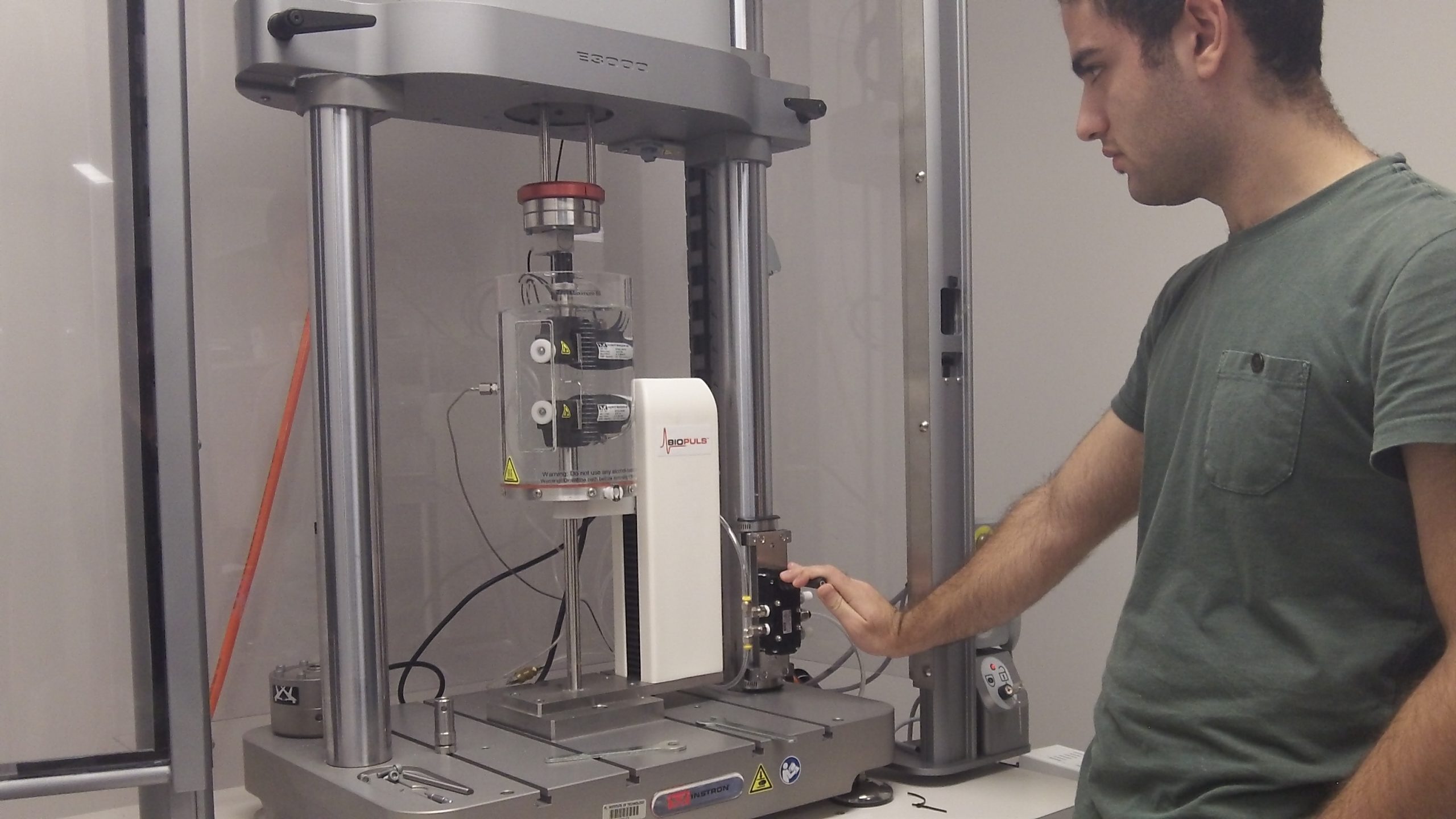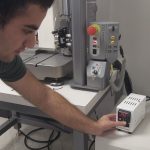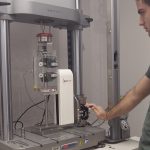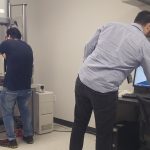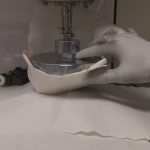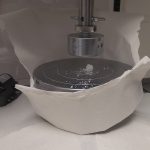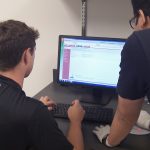Biomed Students Tensile Test the Importance of Research
Our biomedical engineering students get to use cool laboratory equipment. One of the coolest is the Instron ElectroPuls E3000. It’s a mechanical testing instrument capable of performing a wide range of static and dynamic tests, making it very useful for biomechanics research. A basic tensile test, also called a tension test, can be performed to obtain the relationship between stress and strain for a material placed in tension. The stress-strain curve can then be used to determine important material properties (such as modulus of elasticity, yield strength, ultimate tensile strength, fracture strength, etc.) In a uniaxial tensile test, a specimen is subjected to an external, tensile load that slowly pulls and stretches the material at a specific rate until it deforms and breaks. In compression, an external force is applied in the opposite direction of the surface normal vector (opposite of tension). Whether you’re pulling or pushing, this instrument gives the answers needed to develop exciting new biomedical devices, many of which will improve or save lives.
%CODE1BIOMEDICALENGINEERING%

